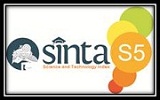ANALISIS KOMPARATIF PENGGUNAAN MASSIVE OPEN ONLINE COURSE DAN PEMBELAJARAN OFFLINE TERHADAP PERILAKU BELAJAR DAN HASIL PRESTASI AKADEMIK MAHASISWA PGSD
Abstract
Keywords
Full Text:
PDFReferences
Abuhassna, H., Al-Rahmi, W. M., Yahya, N., Zakaria, M. A. Z. M., Kosnin, A. B. M., & Darwish, M. (2020). Development of a new model on utilizing online learning platforms to improve students’ academic achievements and satisfaction. International Journal of Educational Technology in Higher Education, 17(1), 38. https://doi.org/10.1186/s41239-020-00216-z
Ahmed, A. A. A., Kumar, T., Iksan, M., Subrahmanyam, S., Kokhichko, A. N., Hussein Ali, M., Mhaibes Tuama, H., & Sadat Mousavi, M. (2022). Comparing the Effectiveness of Massive Open Online Course (MOOC) and Flipped Instruction on EFL Learners’ Reading Comprehension. Education Research International, 2022, 1–9. https://doi.org/10.1155/2022/6543920
Alhazzani, N. (2020). MOOC’s impact on higher education. Social Sciences & Humanities Open, 2(1), 100030. https://doi.org/10.1016/j.ssaho.2020.100030
Barrot, J. S., Llenares, I. I., & del Rosario, L. S. (2021). Students’ online learning challenges during the pandemic and how they cope with them: The case of the Philippines. Education and Information Technologies, 26(6), 7321–7338. https://doi.org/10.1007/s10639-021-10589-x
Coman, C., Țîru, L. G., Meseșan-Schmitz, L., Stanciu, C., & Bularca, M. C. (2020). Online teaching and learning in higher education during the coronavirus pandemic: Students’ perspective. Sustainability, 12(24), 10367. https://doi.org/10.3390/su122410367
Estacio, R. R., & Raga Jr, R. C. (2017). Analyzing students online learning behavior in blended courses using Moodle. Asian Association of Open Universities Journal, 12(1), 52–68. https://doi.org/10.1108/AAOUJ-01-2017-0016
Fabriz, S., Mendzheritskaya, J., & Stehle, S. (2021). Impact of synchronous and asynchronous settings of online teaching and learning in higher education on students’ learning experience during COVID-19. Frontiers in Psychology, 12, 1–16. https://doi.org/10.3389/fpsyg.2021.733554
Fidalgo, P., Thormann, J., Kulyk, O., & Lencastre, J. A. (2020). Students’ perceptions on distance education: A multinational study. International Journal of Educational Technology in Higher Education, 17(1), 18. https://doi.org/10.1186/s41239-020-00194-2
Harefa, E., Kristiyanto, W. H., & Rondonuwu, F. S. (2019). Visualization of Conduction Heat Transfer using Augmented Reality Technology. Indian Journal of Science and Technology, 12(21), 1–6. https://doi.org/10.17485/ijst/2019/v12i21/139551
Huang, L., Zhang, J., & Liu, Y. (2017). Antecedents of student MOOC revisit intention: Moderation effect of course difficulty. International Journal of Information Management, 37(2), 84–91. https://doi.org/10.1016/j.ijinfomgt.2016.12.002
Hwang, G.-J., Wang, S.-Y., & Lai, C.-L. (2021). Effects of a social regulation-based online learning framework on students’ learning achievements and behaviors in mathematics. Computers & Education, 160, 104031. https://doi.org/10.1016/j.compedu.2020.104031
Jo, I.-H., Yu, T., Lee, H., & Kim, Y. (2015). Relations between Student Online Learning Behavior and Academic Achievement in Higher Education: A Learning Analytics Approach. In Lecture Notes in Educational Technology (pp. 275–287). Springer. https://doi.org/10.1007/978-3-662-44188-6_38
Kremer, K. P., Flower, A., Huang, J., & Vaughn, M. G. (2016). Behavior problems and children’s academic achievement: A test of growth-curve models with gender and racial differences. Children and Youth Services Review, 67, 95–104. https://doi.org/10.1016/j.childyouth.2016.06.003
Magdalena, S. M. (2015). The Relationship of Learning Styles, Learning Behaviour and Learning Outcomes at the Romanian Students. Procedia - Social and Behavioral Sciences, 180, 1667–1672. https://doi.org/10.1016/j.sbspro.2015.05.062
Ng, C. F. (2021). The Physical Learning Environment of Online Distance Learners in Higher Education – A Conceptual Model. Frontiers in Psychology, 12. https://doi.org/10.3389/fpsyg.2021.635117
Ngampornchai, A., & Adams, J. (2016). Students’ acceptance and readiness for e-learning in Northeastern Thailand. International Journal of Educational Technology in Higher Education, 13(1), 34. https://doi.org/10.1186/s41239-016-0034-x
Selvaraj, A., Radhin, V., KA, N., Benson, N., & Mathew, A. J. (2021). Effect of pandemic based online education on teaching and learning system. International Journal of Educational Development, 85, 102444. https://doi.org/10.1016/j.ijedudev.2021.102444
Stockinger, K., Rinas, R., & Daumiller, M. (2021). Student adaptability, emotions, and achievement: Navigating new academic terrains in a global crisis. Learning and Individual Differences, 90, 102046. https://doi.org/10.1016/j.lindif.2021.102046
Torun, E. D. (2019). Online distance learning in higher education: E-Learning readiness as a predictor of academic achievement. Open Praxis, 12(2), 191. https://doi.org/10.5944/openpraxis.12.2.1092
Wang, F. H. (2017). An exploration of online behaviour engagement and achievement in flipped classroom supported by learning management system. Computers & Education, 114, 79–91. https://doi.org/10.1016/j.compedu.2017.06.012
Wang, K., & Zhu, C. (2019). MOOC-based flipped learning in higher education: students’ participation, experience and learning performance. International Journal of Educational Technology in Higher Education, 16(1), 33. https://doi.org/10.1186/s41239-019-0163-0
Wu, C., Jing, B., Gong, X., Mou, Y., & Li, J. (2021). Student’s Learning Strategies and Academic Emotions: Their Influence on Learning Satisfaction During the COVID-19 Pandemic. Frontiers in Psychology, 12(September), 1–13. https://doi.org/10.3389/fpsyg.2021.717683
Xie, S., Chen, Q., Liu, K., Kong, Q., & Cao, X. (2021). Learning Behavior Analysis Using Clustering and Evolutionary Error Correcting Output Code Algorithms in Small Private Online Courses. Scientific Programming, 2021, 1–11. https://doi.org/10.1155/2021/9977977
Yan, N., & Au, O. T.-S. (2019). Online learning behavior analysis based on machine learning. Asian Association of Open Universities Journal, 14(2), 97–106. https://doi.org/10.1108/AAOUJ-08-2019-0029
Yang, A. C. M., Chen, I. Y. L., Flanagan, B., & Ogata, H. (2022). How students’ self-assessment behavior affects their online learning performance. Computers and Education: Artificial Intelligence, 3, 100058. https://doi.org/10.1016/j.caeai.2022.100058
Yoon, M., Lee, J., & Jo, I.-H. (2021). Video learning analytics: Investigating behavioral patterns and learner clusters in video-based online learning. The Internet and Higher Education, 50, 100806. https://doi.org/10.1016/j.iheduc.2021.100806
Zarzycka, E., Krasodomska, J., Mazurczak-Mąka, A., & Turek-Radwan, M. (2021). Distance learning during the COVID-19 pandemic: students’ communication and collaboration and the role of social media. Cogent Arts & Humanities, 8(1). https://doi.org/10.1080/23311983.2021.1953228
Zhao, H. (2019). A Summary of the Research on the Teaching Mode of MOOCs. Open Journal of Social Sciences, 7(2), 96–109. https://doi.org/10.4236/jss.2019.72007
DOI: https://doi.org/10.31764/elementary.v6i1.11903
Refbacks
- There are currently no refbacks.

This work is licensed under a Creative Commons Attribution-ShareAlike 4.0 International License.
Jurnal Elementary : Kajian Teori dan Hasil Penelitian Pendidikan Sekolah Dasar
e-ISSN 2614-5596
Email: [email protected]
Published by: PGSD Universitas Muhammadiyah Mataram

This work is licensed under a Creative Commons Attribution-ShareAlike 4.0 International License.
Jurnal Elementary : Kajian Teori dan Hasil Penelitian Pendidikan Sekolah Dasar | Sudah Terindeks:





Alamat Redaksi:








